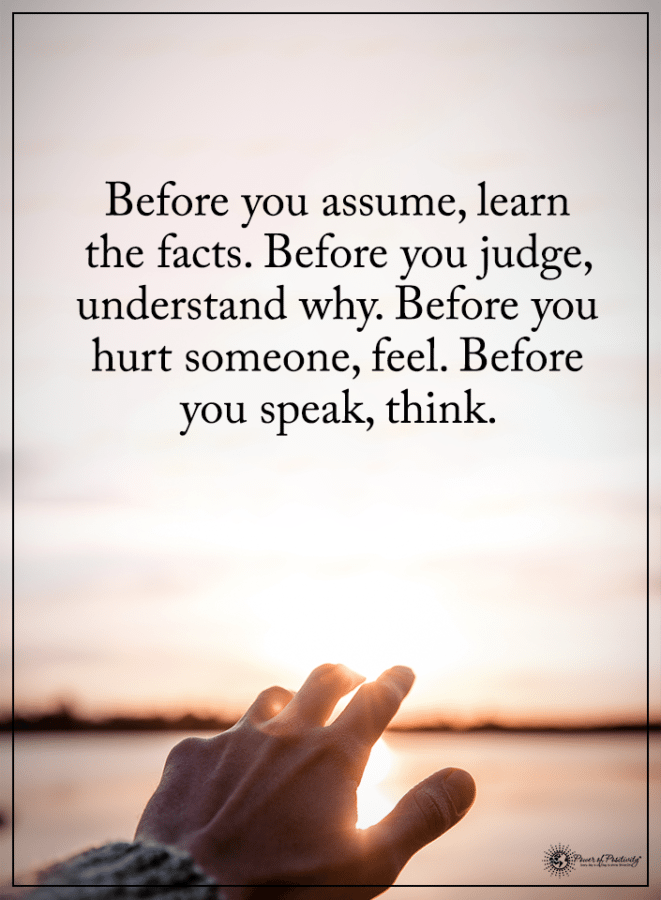You’ve likely heard that you shouldn’t reveal too much information, but that shouldn’t be the case in your relationship. Society makes it seem like you must hide your feelings and never say when something is wrong. However, undersharing with your partner is detrimental to your relationship and overall communication.
When you experience negative emotions like anger, fear, anxiety, or despair, it’s natural to want to keep them quiet. You won’t want your significant other to see you that way, but keeping it to yourself is harmful to you and your relationship. While you don’t want to upset your partner, you also don’t want to disrupt your mental health by keeping quiet.
Undersharing with your significant other does more harm than good. It can lead to isolation, and you might not realize it until it’s too late. Vulnerability and sharing your feelings are sometimes the best thing you can do.
What is Undersharing?
Humans constantly communicate, even when you don’t realize you’re doing it. You communicate nonverbally through the following:
- facial expressions
- body language
- voice tone
- behavior
If you withhold your thoughts, your significant other still knows something is wrong. They will recognize that something is bothering you and know you’re undersharing. You might say nothing is wrong or give a vague answer rather than opening up and being honest.

Five Key Reasons for Undersharing
Every relationship is different, and there are a few reasons for undersharing. These reasons for undersharing all interfere with your relationship strength.
1 – Trust Issues Causes Myriad Communication Breakdowns
A lack of trust in your relationship can lead to undersharing. If you aren’t transparent or question things your significant other does, it can cause feelings of isolation. You must have trust in one another to make things work.
2 – Living a Busy Lifestyle
Life gets busy for everyone, and it can interfere with the strength of your relationship. You might be dealing with tight deadlines, stress at work, conflicting schedules, or other overwhelming situations. When you get home after a busy day, you want to relax and pretend everything is okay. However, since it’s not okay, it leads to internalizing and adversely affecting your relationship.
3 – Trauma Can Cause Undersharing
A traumatic event or shocking situation can change the dynamics of your relationship. Rapid and sudden life changes throw everything off, including your ability to connect.
Some traumatic events that can lead to undersharing with your significant other include the following:
- The loss of a loved one
- Sudden grief
- Job loss
- Accidents
- Illnesses
- Health scares
4 – Engaging in Unhealthy Relationship Behaviors
If you or your significant other engage in unhealthy behaviors, it can lead to undersharing and feelings of isolation. Some of these behaviors include:
- Avoiding confrontation
- Keeping secrets
- Infidelity
- Constant fighting
- Trying to control your significant other
- Forcing change
- Co-dependence
- Not leaning on them in times of need
- Being unwilling to make sacrifices
- Trying to hurt one another in daily interactions
- Frequent criticism
5 – You Don’t Want to Burden Your Partner
Sometimes you keep things to yourself because you don’t want to be a burden. You don’t want your significant other to have to carry your load, so you don’t tell them what’s going on. However, you must remember that your partner wants to help if you’d let them.
Why Undersharing with Your Partner Leads to Isolation
Now that we see what causes this gap of communication, here is how it can lead you to an isolated place.
1 – It Only Allows for a Superficial Connection
Sharing with your partner allows you to feel connected, improving your well-being. When you reveal your thoughts and feelings, it promotes a meaningful bond between you. Without this level of communication, you’ll only find a superficial connection.
2 – You’ll Feel Like No one Values You
When you can’t or won’t reveal yourself, you’ll feel like no one values you or your successes. It leads to isolation because you feel like you’re on your own. Feeling like your significant other doesn’t recognize your value can cause resentment.

3 – Undersharing Can Cause Toxicity or a Break-Up
Undersharing causes conflict in the relationship. It can lead to toxic or unhealthy behaviors and even cause the relationship to end.
4 – It Interferes with Growth and Intimacy
When you under share, it leads to a communication breakdown. One or both partners stop talking about important things, sometimes stopping talking altogether. You might feel like you can’t talk to them without it becoming an argument. When this occurs, you can’t grow as a couple and will experience a lack of intimacy.
5 – This Communication Gap Might Mean You Grow Apart
Not communicating and opening up to your partner interferes with your connection. Without understanding each other’s inner thoughts, your relationship can’t evolve. Eventually, you’ll grow apart and feel alone until you either break up or fix the issues.
6 – Undersharing Leads to Toxic Behaviors
Undersharing exacerbates issues, and you can’t ignore it. Eventually, it’ll go beyond keeping things to yourself and can turn into hostility and harmful behavior.
Some signs that it’s gone too far include:
- constant criticism from one or both of you
- belittling each other
- giving or receiving the cold shoulder
- defensiveness
- passive-aggressive behaviors
- assuming you know what your significant other thinks, and your partner assuming they know what you think
- inability to resolve arguments
- no longer attempting to connect
- inability to compromise
7 – Your Partner Can’t Understand Who You Are
When you under share, your significant other doesn’t have a chance to understand who you are. They won’t know what you need or how they can help you through hard times. Eventually, you’ll start to think that they can’t help, although you never gave them a chance to try.
8 – You’ll Feel Like You’re the Only One Going Through Hard Times
When you undershare with your significant other, you’ll quickly experience loneliness and isolation. It causes you to feel like you’re the only person going through negative emotions. When you feel this way for too long, it can make you feel flawed and alone. It only leads to you isolating yourself so your partner doesn’t see that you’re not in a great place.
9 – Missed Opportunities for Finding Solutions
If you don’t open up to your partner, you miss out on the chance to find a solution together. You’ll continue grappling alone, spiraling until you’re dealing with more than you can handle. Feeling stressed, anxious, or overwhelmed can cause you to miss seeing your strengths and resources. Sharing the problem with your partner gives you another person who can offer suggestions.
10 – Undersharing Creates Negative Self Talk
If you don’t talk to someone about your thoughts and feelings, it can lead to negative self-talk. Keeping all of your emotions in can cause toxicity, including shame, to build up within. It also makes you feel embarrassed, weak, unworthy, and unlovable because your thoughts convince you of these things.
When you feel all of this, it causes tension and negativity within your relationship. Your partner will know something is wrong, and you’ll isolate yourself to hide it.
11 – Your Partner Will Think They Did Something Wrong
You might not say anything, but your partner will pick up on your body language and demeanor. They’ll know something is wrong, but they won’t know what it is unless you tell them.
Otherwise, they must guess what’s wrong and think they did something wrong. Your partner might believe they did something to upset you, causing them to become more concerned the longer you withhold.
12 – Other Effects of Undersharing
There are many effects of undersharing, making it highly detrimental to your relationship and well-being. Some of the other results include:
- Lack of intimacy
- Difficulty reaching goals
- Increased conflict
- Feeling unseen
- Turning away from one another
- Developing a negative perspective of one another
How to Fix It and Improve Communication
The only way to develop a deep connection with your partner is by opening up to them. Let go of the idea that you’re oversharing and embrace feeling seen, heard, and cared for as you are. It might be uncomfortable initially, but the bond it creates is worth every moment.
1 – Learn New Communication Strategies
If you can learn how to connect with your partner, you’ll have an easier time sharing your life with them. You’ll want to tell them the details of your day and the problems you’re experiencing. Find ways that work for both of you, and you’ll become more comfortable sharing.
2 – Practice Identifying and Feeling Your Emotions So You Can Communicate Them
When you become comfortable experiencing your emotions, it gets easier to talk about them. It’ll take time, so start small or seek guidance from a therapist.
3 – Advocate For Yourself, Communicate, and Set Boundaries
Speak up for yourself, and don’t be afraid to reveal your truths. When you advocate for yourself, it enforces your boundaries, allowing you to feel comfortable and respected. If your partner doesn’t know how you feel or think, they won’t know when they’re crossing a line.
4 – Learn Your Partner’s Attachment Styles
The attachment theory refers to a person’s way of handling relationships. It’s based on how they received care early in their life. Each person’s style can offer insight into how they communicate.
Final Thoughts on Undersharing with Your Partner Leads to Isolation, According to Psychology
Undersharing with your partner can cause more issues than you might initially realize. It prevents you from forming a deep bond with your partner and can create tension and further problems. No matter the reason for your undersharing, you must overcome and find a way to fix it. If you want to connect with your significant other and develop a lasting connection, it’s time to open up.
The post Undersharing With Your Partner Leads to Isolation, According to Psychology appeared first on Power of Positivity: Positive Thinking & Attitude.








